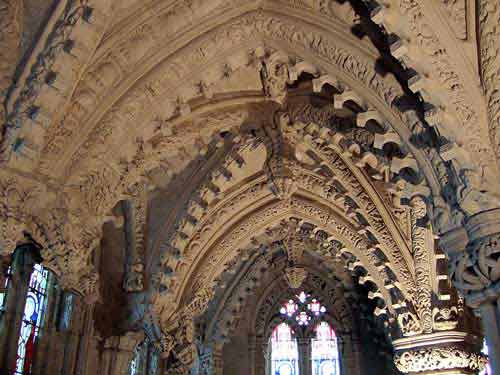 THE MISERY OF CAPITALISM AND INDIVIDUALISM
THE MISERY OF CAPITALISM AND INDIVIDUALISM
The last few months have seen great turbulence on the world stage of economics
and politics all caused by declining moral standards in both public and private life. Stock markets have fluctuated
widely bringing misery to most of humanity in one form or another with increased costs of oil and decline in
available mortgages. Energy supply companies have been accused of profiteering particularly from the poorer of their
members. The dash for Western control of Iraq’s oil has gone badly wrong with the death of over 100,000 people since
the war began and with but a small sign of a stable outcome. China’s excessive control of Tibet has reached highly
questionable proportions, while here in the UK we are seeing an increasing attempt by all three major political
parties to control rather than reflect the views of their adherents. Meanwhile the media, whether it be in terms of
soaps, comedy or even documentaries, tends to reflect a degradation or unthinking fundamentalism of humanity in
terms of relationships and content.
Humanity is reaching a cross roads of existence. Thanks to the rise
of individualism, and the omnipresence of the spectre of human rights, it is now a question of who shouts loudest,
who has the new ephemeral outlook, who can shock the most, who has the greatest sense of wealth production by
whatever means, these are the new leaders of society. Unbridled individual expression has supplanted social
responsibility in our new order. When one allies this to stock market trading and venture capitalism, or to the
politics of such as Bush/Blair/Brown or Mugabe, the mix spells trouble for humanity.
THE HISTORIC SHIFT OF POWER
Humanity, unfortunately, is so far not sufficiently advanced that it needs not leadership, i.e. a guiding,
hierarchical approach to living. Until now this was reflected in both Church and State. In the past this structure
regulated society, for good and ill - and both were certainly evident. The State looked after politics and the
management of the economy and interstate relationships while the Church looked after morality and spiritual matters.
It was a process, in the West, first laid down in the time of Emperor Constantine in the fourth century when
Christianity became the acceptable religion in the Roman Empire. It was symbiotic, both dependent on the other for
mutual survival and domination. Consequently both respected each other. This worked, albeit to a limited extent.
With the rise of communicable knowledge and the Reformation in the 16th century the Church suddenly found itself
having to be more accountable to its flock. It could not merely ‘order’ the faithful. There had to be moral and
intellectual reasons behind its decisions. Equally the State, as democracy grew, became more accountable. It could
no longer reflect the cliques which put it in power but the aspirations of the growing sections of population which
elected it. The progress of trade, notably through trade unions, also became subject to the checks and balances of
the work force which ultimately produced the profit,
 DECLINE
OF THE CHURCH
DECLINE
OF THE CHURCH
Across Europe, and indeed the world, that is now breaking
down. The Church is in decline and so is its influence. Moreover, as the influence of the Church declines in terms
of individual morality and family relationships organised round a caring married couple, the state is now trying to
transgress into the domain of the church by recognising the effects of what the Church deems immoral living and an
excess of expression of individual human rights by legislating for it as if it were the norm and acceptable, while
at the same time coercing the church into acceptance of its dictates - e.g. in single parent families, drugs,
adoption and schools. In Great Britain the State seems determined to dismantle the moral imperatives of the Church
whilst having no alternative moral precepts to put in its place, only the questionable concept of individual choice.
DECLINE OF THE STATE
The major problem is that the State has now come under attack in quite a lethal
way. It has put its faith in commerce and commerce is now dictating the agenda. Consequently the State itself is
increasingly irrelevant in managing the financial affairs of the country, the very aspect of human living it was
democratically designed to protect and enhance. The emergence of multinationals and non-accountable financial
traders now dealing in millions, or even billions, of dollars or pounds for their own financial gain can destabilise
a country’s financial planning and thus cause hardship to the ordinary individual. Multinationals owe no allegiance
to either countries or to the work force, only to profit by whatever means. This is becoming the new god.
Consequently they can easily circumvent any legitimate trade union action by such as moving their production lines
to countries which have no such labour protection, or contribution to a state's taxation by moving headquarters to a
more compliant state. Inevitably this means that countries vie with each other, by tax incentives, to attract at
least the head offices of these companies to boost their status and tax revenues. Wherein lies their morality?
On the financial front we have seen not only the decline in mortgage facilities to private individuals caused
by the present financial crisis surrounding the sub-prime mortgage problems of the United States but also a knock-on
effect which has affected every individual here in the United Kingdom. When financial trading in stocks and shares
becomes problematic, i.e. not producing a good financial return, traders move their money into other markets,
particularly the commodities market. This is fine if it is in gold or platinum. Not many would be hurt but when it
moves into such as oil the whole of society suffers. It has, for example, been estimated that in the UK the real
price of oil is about 100p a litre but thanks to these traders dealing in its futures it is now well over 130p a
litre.
WHEREIN LIES ACCOUNTABILITY?
Back to basic principles. The basic problem with all this is - whence comes moral
accountability not only for ordinary lifestyles but for the commerce which is supposed to be subservient, i.e. a
help to lifestyle? If it is from a source outside human understanding, e.g. God or some super natural force, then
parameters are set which cannot be argued against, only the execution of them. But if morality becomes expressed by
the state then it becomes political, subject to human rights, human argument, and the negative attribute of denial
because it was expressed by the wrong party.
An appeal to humanism is tarred with the same brush.
Humanism originated within Christianity as an attempt to give humanity control over its own destiny in terms of
‘living’, i.e. God created male and female to share in the management of His creation and gave humanity reason,
logic and moral awareness to make decisions based on a divine concept of keeping back the forces of chaos through
the holistic use of these ‘powers’ for the benefit of all creation.
Humanism in the twentieth century,
however, has been highjacked by atheists. As a consequence, because there is no outside guiding influence or any
moral precept originating from within, atheist humanity ceases to be a moral precept, merely an individual wish,
i.e. it has no external, let alone eternal, guidance or existence but is merely the product of the time and space
occupied by humanity in a particular cultural environment. The inevitable logic of any survival of the fittest of
the species is that the fittest will seek to comfort their own survival by whatever means possible. Morality enters
their equation as much as it does a lion chasing a zebra. In humanity's slightly more advanced outlook the quarry is
allowed the illusion of being free and in control. We may think, for example in the UK, that we enjoy democracy, but
after decades of elections where the successful party has commanded well under 50% of the vote, real influence and
control lies with the political elite of all parties and those, notably business and unions, who support them. They
are happy to fight for control at elections among themselves. The electorate are merely bystanders who mainly vote
along historic lines. Small wonder it is that corruption has been found as endemic within the system (since when has
a lion been held accountable for its actions by zebras) and that fewer people now vote.
 Further what we have seen over the last few weeks is an extra dimension to this -morality as
expressed by global capitalism. Capitalism is now seen as such a beneficial aspect of any economy that it needs to
be fostered at whatever the cost. Consequently capitalism, or multinationals, now control not only the financial
aspects of a country’s finances but also their whole outlook (political, moral and physical), as well as individual
lifestyles.
Further what we have seen over the last few weeks is an extra dimension to this -morality as
expressed by global capitalism. Capitalism is now seen as such a beneficial aspect of any economy that it needs to
be fostered at whatever the cost. Consequently capitalism, or multinationals, now control not only the financial
aspects of a country’s finances but also their whole outlook (political, moral and physical), as well as individual
lifestyles.
THE DOMINATION OF CURRENCY AND
TRADE
Take the latest financial crisis. At its worst the exercise of
capitalism controls one nation’s view of another. The world may look askance at China's lack of human rights, its
lack of democracy, its suppression of Tibet, its demolishing of people’s homes without any redress to make way for
the Olympics, its imprisonment of dissenters, its refusal to allow the world wide web into its territory without
sufficient negatory safeguards to protect itself, but the world does nothing effective to implement its distaste.
China may have promised the Olympic movement that it would improve its human rights record but any politician worth
his or her salt would have realised that by the time any non-improvement had been noticed it would have been far too
late to change the games to another venue. Political expediency pays lip service to morality. The World wants to go
to the Olympic Games but what is really important to the World is to continue to trade with China because of the
economic benefits. Consequently it is prepared to overlook problems or to accept hollow promises as a salve to its
conscience. Morality takes a back seat. Peter Mandelssohn (Europe’s Trade Minister) is an abject example with his
opposition to the signs of dissent as the torch travelled round Europe as being counter productive. His solution is
to leave it to the politicians who can engage in dialogue with the Chinese over human rights issues. When? In the
decade since China was awarded the Olympic Games such dialogue has achieved no tangible result. Consequently when
opposition occurs in real terms it is not from any State but from ordinary individuals within the country objecting
to, i.e. rioting against, the conditions within that country. They have no other course because the World’s nations
take no effective action. Well nations do but only after such demonstrative action is highly publicised, i.e. seen
on the Internet or TV and there is political capital to be made from supporting such moves. States never institute
real action themselves. Why? Economics and world trade have become the dominant force which drives humanity and thus
their positive reaction to it in order to be re-elected, unless of course TV images of such problems causes a
groundswell of human opinion to move their re-election strategy onto a different level.
THE RISE OF PSYCHOPATHY
So
what about these modern manifestations of capitalism? The two problems are the stock market and multinationals, both
of which exhibit psychopathic tendencies in that their activities are driven by pure self interest with no thought
to social awareness or morality. The stock market was originally established to link investors with those who need
extra cash, notably growing businesses needing extra capital (those with ideas but not the cash to implement them)
and those needing to borrow to fund a particular venture. Not any more. Financial traders find this far too
constricting. Why not ‘borrow’ a company’s shares and see if you can make a quick profit without actually owning
them. Why not create a host of mortgages which are known to be problematic when it comes to repayment and then sell
them off before this becomes evident? Why not issue a few rumours about a company to drive its price down so you can
buy at the bottom of the market and sell when the rumours are found to be unsubstantiated? Why not move your capital
into a more secure and known outcome, i.e. entities which companies and people depend on, i.e. the commodities
market, and make a profit no matter what its social outcome. Social awareness and responsibility is not the issue.
Profit is.
FAILURE OF RELIGION TO
RESPOND
Where is the Christian voice in all this? The Church itself must
take some blame for this. There has been no coherent effort to bring politicians, let alone market traders, to
account, partly because it knows not how to conduct a sustained attack on these issues, but mainly because it has
become enmeshed in its own domestic problems.
Take, for example, the Roman Cathol ic Church. Faced with the growth of capitalism the Vatican has issued a new set of the “Seven
deadly sins”, included in which is the sin of “being obscenely rich”. Small wonder it is that this has caused mirth
around the world when it is realised that the Vatican itself is valued according to Bankers' best guesses at $10
billion to $15 billion. Of this wealth, Italian stock holdings alone run to $1.6 billion, 15% of the value of listed
shares on the Italian market. The Vatican has big investments in banking, insurance, chemicals, steel, construction,
real estate. Dividends help pay for Vatican expenses and charities such as assisting 1,500,000 children and
providing some measure of food and clothing to 7,000,000 needy Italians. Unlike ordinary stockholders, the Vatican
pays no taxes on this income, which led the leftist Rome weekly L'Espresso to call it "the biggest tax evader
in Italy”. The Wall Street Journal said that the Vatican's financial deals in the U.S. alone were so big that very
often it sold or bought gold in lots of a million or more dollars at one time. The Vatican's treasure of solid gold
has been estimated by the United Nations World Magazine to amount to several billion dollars. By some the Catholic
church is regarded as the biggest financial power, wealth accumulator and property owner in existence. To many
financial experts she is a greater possessor of material riches than any other single institution, corporation,
bank, giant trust, government or state of the whole globe. Yet how is this used?
ic Church. Faced with the growth of capitalism the Vatican has issued a new set of the “Seven
deadly sins”, included in which is the sin of “being obscenely rich”. Small wonder it is that this has caused mirth
around the world when it is realised that the Vatican itself is valued according to Bankers' best guesses at $10
billion to $15 billion. Of this wealth, Italian stock holdings alone run to $1.6 billion, 15% of the value of listed
shares on the Italian market. The Vatican has big investments in banking, insurance, chemicals, steel, construction,
real estate. Dividends help pay for Vatican expenses and charities such as assisting 1,500,000 children and
providing some measure of food and clothing to 7,000,000 needy Italians. Unlike ordinary stockholders, the Vatican
pays no taxes on this income, which led the leftist Rome weekly L'Espresso to call it "the biggest tax evader
in Italy”. The Wall Street Journal said that the Vatican's financial deals in the U.S. alone were so big that very
often it sold or bought gold in lots of a million or more dollars at one time. The Vatican's treasure of solid gold
has been estimated by the United Nations World Magazine to amount to several billion dollars. By some the Catholic
church is regarded as the biggest financial power, wealth accumulator and property owner in existence. To many
financial experts she is a greater possessor of material riches than any other single institution, corporation,
bank, giant trust, government or state of the whole globe. Yet how is this used?
Nor is the Anglican
Church free from such inner squabbles, but for the Anglican Church it is not so much finance as inept dealings over
what it perceives as essential to Christian belief, the role of women within the Church, gay and lesbian rights, or
fundamentalist versus liberal. These remain its core issues, fought over week by week in private, in the press, and
in interminable meetings at national and international level. True it issues statements from time to time on the
World’s problems but that is what they remain, statements. Never do we see a concerted effort to bring people to
account, to stay the course no matter what. All too soon it is off to the next problem (or more likely back to its
own internecine warfare) on which to make a statement, as if that salves their conscience. Duty done.
ARTICLE 29 OF THE UNITED NATIONS ON RESPONSIBILITY
This is but a microcosm of our new world order. Many will other examples. So
where does that leave us? In despair? Probably. Terminal? Possibly. Ordinary humanity is as powerless now in the
21st century as ever it was under Constantine and his successors. Real power resides beyond the control of ordinary
humanity. It always has. The United Nations made a brave attempt to redefine the rights and responsibilities of
human beings in its declaration of what are its rights and responsibilities. Most remember the rights of the
individual, and quote them often! At the end, in article 29, the United Nations did indicate that society, too,
deserved recognition and rights.
Article 29.
• (1) Everyone has duties to the community in which
alone the free and full development of his personality is possible.
• (2) In the exercise of his rights and
freedoms, everyone shall be subject only to such limitations as are determined by law solely for the purpose of
securing due recognition and respect for the rights and freedoms of others and of meeting the just requirements
of morality, public order and the general welfare in a democratic society.
From this statement it
seems clear that the worlds of individualism, of capitalism, of politicians, are all at variance with this
objective. They have purely personal objectives, whether it be of self-expression, of profit, or of power.
Yet with this statement we are back to the holistic approach of Christian humanism. We cannot depend upon
God’s intervention simply because that is not how we were created. True, there is a supernatural guiding influence
but we were given the responsibility and the means and so must exercise it, for good or ill. Until we can either
learn or be taught to exercise these duties and so to press for an injection of morality and public accountability
into the affairs of those who seek to control society, until in other words we can evolve onto a stage beyond
capitalism and the politics of rivalry, does humanity as a species really deserve to survive?
Since
writing this way back in August 2008, most of the predictions have come true. Yet we still do not learn the lesson.
Spending our way out of recession, above all, does nothing to change the mindset of those who lead and those who
meekly follow. Year on year increases in sales are impossible to sustain. The problem is that the so-called leaders
of our society have too much of an investment in such a procedure, or are too narrow-minded, or lack the vision to
seek any solution beyond Capitalism, which is now as much a failed concept as Communism. To think that the
politicians and capitalists which caused this world depression can now exercise self-control and rectify the world
depression has as much point as asking a hungry lion not to eat a zebra. Finance will always find a way while their
servants, the politicians, will always seek to preserve their power.
Pictures are the interior of Rosslyn Chapel. Written 2008, text amended 2011.